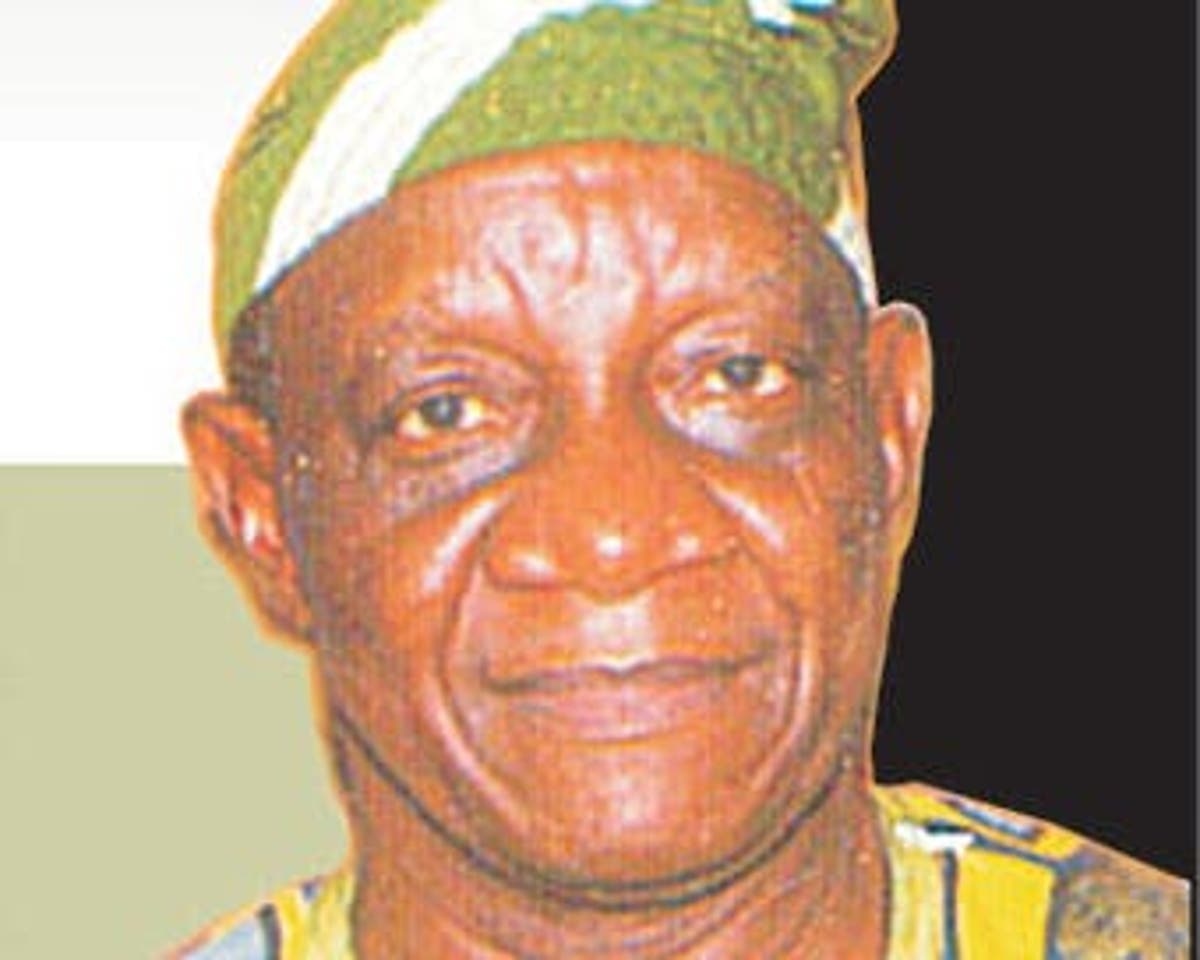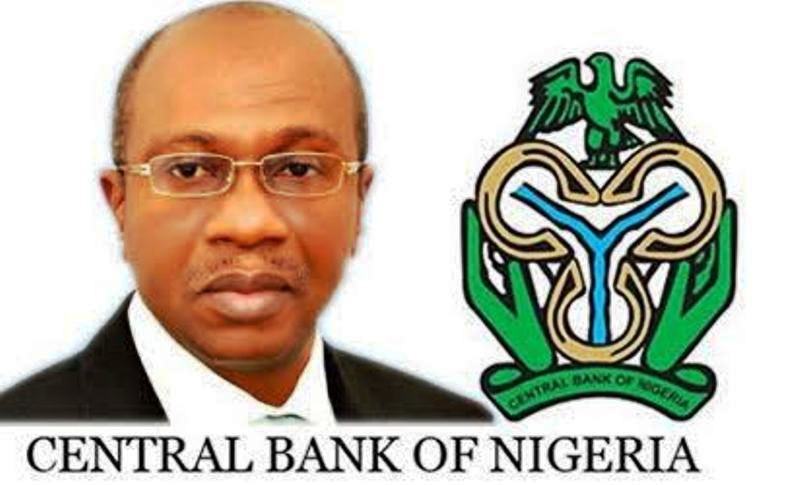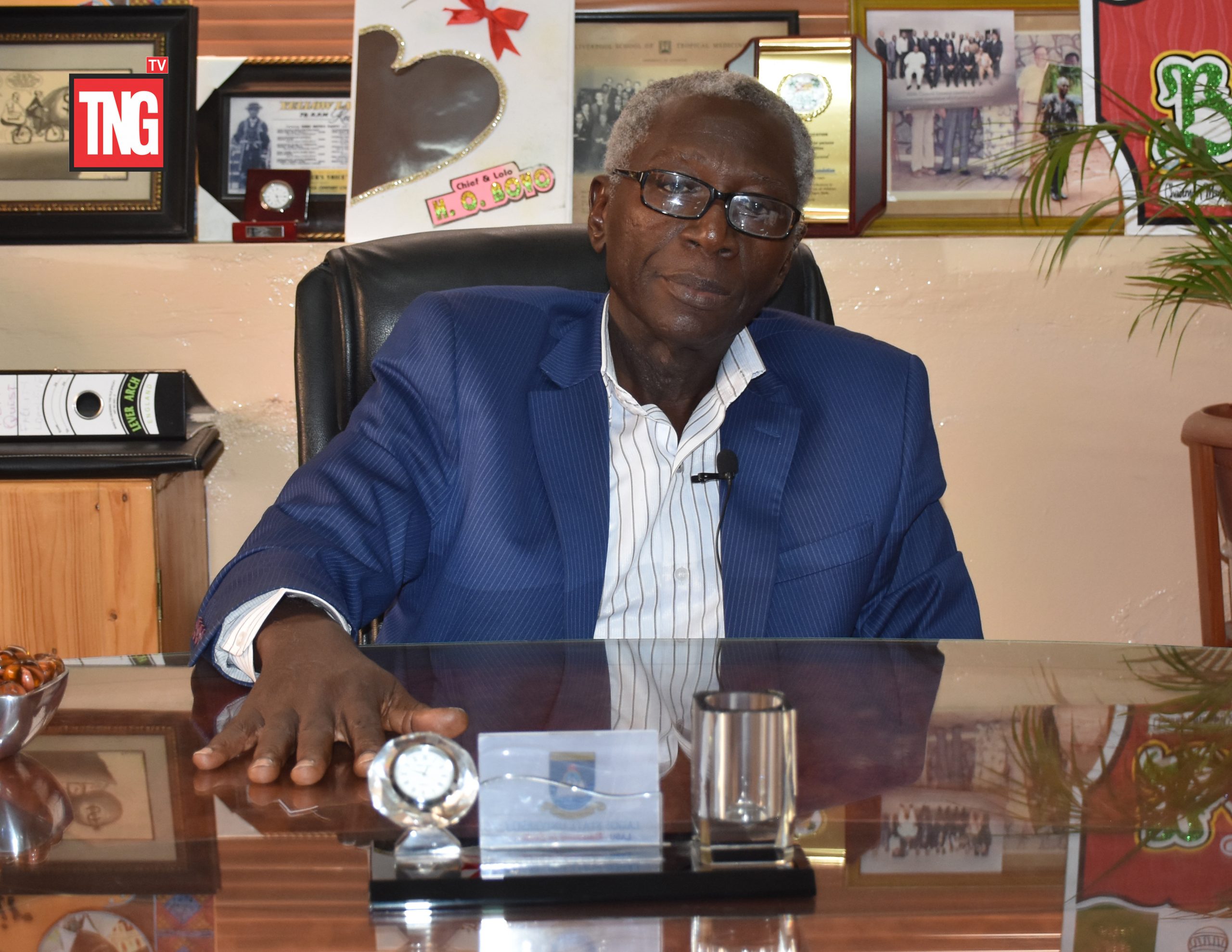The patterns of migration in Nigeria are diverse and multifaceted. From rural-rural migrations driven by communal conflicts and environmental challenges to rural-urban migrations spurred by the quest for better living conditions, urban-urban and inter-state migrations for better employment opportunities, we learn that the motivations driving migration are as varied as the destinations.
Understanding these patterns and the diverse factors that shape individuals’ decisions to relocate within and outside the country is crucial to shaping informed policies and strategies that address the root causes and effectively help to manage migration.
This exclusive interview with Solomon Obanla, a migration expert with over 15 years of experience in the field, shares insight into the patterns and evolving trends of migration within Nigeria.
What are the key patterns and trends in migration within Nigeria, and how have they evolved over the past decade?
Migration in Nigeria manifests through diverse patterns. These patterns include rural-rural migration, characterized by the movement between villages either temporarily or permanently; rural-urban migration involving movement from rural areas to towns or cities; urban-urban migration which is relocation within towns or cities, and inter-state migration, involving movement across Nigerian states. Each migration pattern is influenced by a myriad of factors such as communal conflicts rooted in cultural, ethnic or religious differences. In the case of rural-urban migrations, inadequate infrastructure and the absence of fundamental amenities like water, education, healthcare, and proper roads compel individuals to seek better conditions in urban centers. The allure of employment prospects and an improved quality of life often propel urban-urban migration, alongside motivations tied to marriage or securing a more favourable job location. Inter-state migrations, on the other hand, are influenced by a complex interplay of factors such as security concerns, educational pursuits, employment opportunities, economic considerations, and the impacts of climate change.
Are there specific sectors in Nigeria where migration has had a more pronounced impact, either positive or negative, and what strategies can be employed to maximize the benefits of migration in these sectors?
Generally, internal Migration in Nigeria impacts positively on human development. We have seen an increase in the number of enrollments in the educational sector from primary to higher institutions both in rural and urban settlements. There is also measurable improvement in the standard of living of people who move from rural to urban settlements, and people who move from rural to rural settlements are assumed to have a better life expectancy. I can say that internal migration in Nigeria has had a positive impact on the educational sector. According to the National Universities Commission, Nigeria now has 270 universities across the country, as well as several Polytechnics and mono-technics. These higher institutions are owned by federal and state governments as well as private individuals and corporations. Some of these institutions are located in some rural areas in Nigeria thereby improving the standard of living of people in the locations and creating jobs and business opportunities. Also, most of the students in these institutions came from different States across Nigeria, and their migration for study purposes promotes cultural, religious, and ethnic integration and marriages in their destination settlements.
In some settlements in Nigeria, migration has had a negative impact on the agricultural sector. Land disputes, communal conflict; poor infrastructural developments, lack of basic amenities, and environmental degradation have made many rural settlers migrate to urban areas and this has greatly reduced food production and supply in Nigeria. To maximize the benefits of migration in these sectors, both government and private institutions need to work together in making good economic policies and providing basic amenities and security.
In your view, how does internal migration impact urbanization and economic development in major Nigerian cities?
Internal migration (rural-to-urban) impacts both positively and negatively on urbanization and economic development in the major cities of Nigeria. Take Lagos for instance, migration into Lagos has promoted trade flow and employment possibilities for its youthful migrants, thereby, positioning the city of Lagos as the economic, financial, and commercial nerve center of Nigeria. It is said that Lagos’s urbanization started in the 1970s until the 1990s during the oil boom and industrialization. For those decades, even until now, thousands of people continue to migrate to Lagos from rural areas across the country to seek employment and business opportunities. This migration pattern has also led to inadequate physical and social infrastructure, proliferation of informal settlements, overcrowding, increase in crime, and so on.
What is the nexus between forced migration, conflict, and development within Nigeria and its neighboring regions?
Armed conflict in Nigeria is the push factor of forced migration. This has forced millions of people to flee from their settlements. Many of them are now internally displaced while others have sought refuge in neighbouring countries. Over the years, Nigeria has been devastated by violent conflicts, mainly from the Boko Haram insurgency in the north-east, banditry and kidnapping in the north-west, and farmer- herder conflict in the north-central parts of the country. Attacks and insecurity, particularly in the north-east, have displaced millions of people, devastated agricultural production and other livelihoods, cut off essential services, and resulted in food insecurity and the outbreak of diseases such as cholera. The International Organization for Migration (IOM) Global Crisis Response Platform Nigeria reported that non-state armed groups in the north-east have perpetrated violence, causing a major humanitarian crisis, heightened insecurity, and waves of forced displacement and human rights violations. According to United Nations Office for the Coordination of Humanitarian Affairs (OCHA), 8.4 million people in the north-east were in need of humanitarian services in 2022, of whom 2.2 million were Internally Displaced Persons (IDPs); 1.5 million returnees who lack access to likelihood and essential services; and 3.9 million members of communities affected by the hosting of IDPs, including an estimated one million people who were inaccessible to humanitarian workers.
The perceived inability of the leadership to solve important issues impacting the nation, such as employment creation, resource allocation, and infrastructure development, exacerbates insecurity in Nigeria. Religion has also played a pivotal role in escalating conflicts in Nigeria and Mali, as evident in the operations of The Islamic State’s West Africa Province (ISWAP), Boko Haram and other religiously affiliated armed groups in Nigeria and the Jama’at Nusrat al-Islam wal Muslimin, the Islamic State in the Greater Sahara in Mali. It is therefore important that the government of Nigeria should guarantee the safety of forced migrants who are willing to return to their ancestral homes. Also, the authorities in Nigeria and Mali should ensure that the rights of refugees and asylum seekers are protected especially by granting nationality/citizenship to refugees who may be unable to return to their places of origin, to avoid a situation of statelessness in reference to the 2017 Banjul Plan of Action on the Eradication of Statelessness.
How do remittances from the Nigerian diaspora contribute to the country’s economic development and social well-being?
Remittances from the Nigerian diaspora contribute to Nigeria’s economic development and social well-being many ways. About five million of Nigerians depend on remittances. Every year, about ten million of Nigerians in diaspora send money home to their families either for projects or well-being, and millions of Nigerians benefit from them. Nigerian diaspora make an invaluable contribution to the Sustainable Development Goals (SDGs) through remittances and investments. In particular, they contribute to ending poverty and hunger; promoting good health, quality education, clean water and sanitation, decent work and economic growth; and reducing inequalities.
Nigerian diaspora send on average US $200 to US $300 home every one to two months. This represents only 15 per cent of what they earn. The rest stays in their host countries. But what they do send can make up as much as 60 per cent of a household’s total income, representing a lifeline for millions of families. Remittances can be costly to send, and technical innovations like blockchain and mobile money might be the solution to keeping costs down. Right now, currency conversions and fees take up about 6 per cent of the total amount sent. That’s double the 3 per cent target set by SDG. In this regard, there’s enormous potential for innovative digital financial services.
Also, about 75 per cent of remittances are used to put food on the table and cover medical expenses, school fees or housing expenses. In times of crisis, Nigerian diaspora are likely to send more money home to cover family emergencies. The remaining 25 per cent of remittances, representing over US$150 billion per year, can either be saved or invested in asset-building or activities that generate income and jobs.
What are the key challenges and opportunities associated with international migration for skilled professionals leaving Nigeria?
Most Nigeria skilled professionals who seek international migration are pushed by circumstances such as toxic work environment, poor remuneration, poor infrastructure, unemployment, layoff, etc. Over the last few decades many African countries have failed to create jobs, despite pursuing structural adjustment policies recommended by the World Bank and International Monetary Fund. Instead, in many countries including Nigeria, there has been a decline in job opportunities and real incomes. Between 1994 and 2004, the number of workers living on less than a dollar a day increased by 28 million in sub-Saharan Africa. International migration definitely has many complex challenges including brain drain, revenue loss and reduction in the supply and quality of essential services.
Conversely, opportunities associated with international migration for skilled professionals leaving Nigeria include job vacancies, increase in economic growth, additional sources of tax for host country and remittances for countries of origin, reduction of unemployment new innovations and ideas, favourable economic and cultural impact, improved lifestyle, etc.
Considering the brain drain phenomenon, how can Nigeria effectively harness its diaspora’s intellectual and financial resources for development?
International migrants (skilled professionals) from developing countries like Nigeria are generally more likely to stay in their host country than migrants from advanced countries. Some may never return back to their country of origin. The countries of origin of these skilled professionals will have to attract back these emigrants in order to ensure that their fragile economies will be able to maintain enough highly skilled professionals for development. Regaining them can also bring valuable management experience, entrepreneurial skills, and access to global networks. However, experience shows that such efforts have, for most of the time, been fruitless. One way the Nigerian government can alleviate the negative impact of the brain drain is to facilitate the return of its skilled professionals and their reintegration into their home communities and to devise ways of using their skills. The receiving countries can also play an important role in this respect. Use of short-term and project-related migration, as a means of improving the skills of nationals of sending countries can be a very helpful instrument. Bilateral or multilateral agreements can be signed and implemented for this purpose.
How can Nigeria’s policy framework be strengthened to support sustainable reintegration and development for returnee migrants?
I think there are no return migration legal frameworks and there is no specific stand-alone policy on return migration. Other migration policies refer to it and there is a Standard Operating Procedure (SOP) on return and reintegration (an operational document). The 2014 National Policy on Labour Migration (NPLM) has a section dedicated to return migration (FGN, 2015a). The aim of the policy is to facilitate the voluntary return and reintegration of Nigerian migrant workers. The policy condemns forced returns and describes four areas for government action to achieve its objectives on return migration – collaboration between Nigeria and host countries on return and reintegration programmes, ensuring returnees can apply their skills and expertise to the development of Nigeria through reintegration programmes, reducing bottlenecks associated with the registration of companies to incentivize returnees to invest in Nigeria, and more generally creating an environment conducive to attracting the return of Nigerian talents.
The remit for return policy issues sits with the National Commission for Refugees, Migrants, and Internally Displaced Persons (NCFRMI), formerly known as the National Commission for Refugees, which coordinates return, readmission and reintegration (RRR) initiatives across the other ministries and agencies involved. It is important that government agencies and ministries dealing with the issues of return migrants, and civil society organizations should work in collaboration towards sustainable reintegration and development for returned migrants.
What role do governmental and non-governmental organizations play in fostering a conducive environment for migration that aligns with sustainable development goals in Nigeria?
The SDGs’ central reference to migration is made in Target 10.7, which is, to facilitate orderly, safe, regular, and responsible migration and mobility of people, including through the implementation of planned and well-managed migration policies, which is in Goal 10 to reduce inequality within and among countries. Some other targets also make direct connections to migration topics, including labour migration (8.7 and 8.8), international student mobility (4.b), human trafficking (5.2, 8.7 and 16.2), remittances (10.c), migration data (17.18) and more. To foster a conducive environment for migration that aligns with sustainable development goals in Nigeria, the government has a pivotal role to play in creating an environment that encourages citizens to thrive and fulfill their aspirations, thereby reducing the urge to emigrate. The government needs to partner with non-governmental organizations, and private institutions to create more jobs for its youthful population who are potential migrants, support small and medium-sized enterprises (SMEs), and digital transformation. It is just very essential to create opportunities for the younger population. These efforts are vital in providing the youth with alternatives and reducing the desire to migrate. While there is nothing inherently wrong with migration, individuals also should have a clear purpose and goal when moving to another country.
From your perspective, what policy recommendations would you propose to ensure migration is a catalyst for sustainable development within Nigeria?
I would like the government to pay close attention to the issue of irregular migration, human trafficking, and organ harvesting. We cannot also over-emphasize the need for the government to partner with private institutions towards the creation of more job opportunities and support small and medium-sized enterprises (SMEs).



